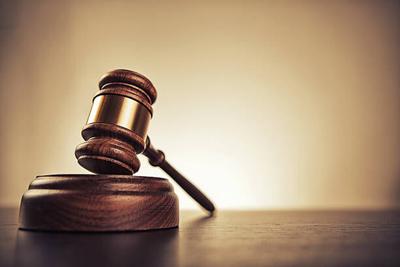THE general counsel for the CNMI judiciary, attorney Hyun Jae Lee, has requested the Superior Court to quash the subpoena of rape defendant William Abraczinskas, and issue a protective order to prevent the disclosure of judiciary records.
Abraczinskas, represented by Chief Public Defender Douglas Hartig, has subpoenaed the Superior Court’s human resource office for documentation, reports and interviews related to the allegation that he sexually assaulted another judicial employee.
Abraczinskas, 34, a former law clerk of Judge Kenneth L. Govendo, was charged with sexual assault in the first degree, assault and battery, and disturbing the peace. He has pled not guilty.
In an 11-page motion, Lee said the judiciary has standing to challenge the subpoena because the documents, objects, and information sought by the defendant are government property, some of which may be privileged or protected from discovery, including confidential records pertaining to personnel, information protected by attorney-client privilege, personally identifiable information, and information related to court administration.
She said the subpoena is also procedurally defective.
“The subpoena at bar directs the Judiciary’s HR Officer to produce subpoenaed documents to a party’s office, namely the Public Defender’s Office, as opposed to the court,” she added.
Because the subpoena directs delivery of documents to a location other than the court, the court must find the subpoena as procedurally defective under Rule 17(c) and therefore invalid, Lee said. “Thus, it must be quashed,” she added.
“The subpoena must also be further quashed because the moving party has not provided a reasonable time for compliance,” she said.
She said the judiciary’s HR officer was first served with a subpoena on Aug. 2, and with an amended subpoena on Aug. 3.
“The Subpoena directs the production of documents by 1 p.m. on August 4th. This is less than a full two-days’ notice. Such short notice and deadline present an unreasonable and unfeasible time for compliance. Because the timeline to comply is unreasonable and oppressive, the subpoena must be quashed,” Lee said.
Citing previous rulings, she said “the materials requested in the subpoena are not specific and irrelevant to the moving party’s criminal case. Also, the materials are not admissible.”
She said the subpoena requests for “all” or “any and all” records related to the moving party’s employment and investigation reports and fails to identify the item sought and what the items contained.
She said the subpoena application was intended as a general fishing expedition.
“If the court is not inclined to grant the request,” Lee said, “the Judiciary moves this court to modify the subpoena so that privileged, protected, and irrelevant information and materials are not subject to Rule 17(c) subpoena.”
In addition, she said, if the court does not quash the subpoena, “the Judiciary respectfully seeks at a minimum of 14 days to comply.”
For his part, Associate Judge Joseph N. Camacho set a hearing on the judiciary’s motion to quash the subpoena for Aug. 25, 2023.
The court will also hear Abraczinskas’ motion to stay proceedings on the same day.
The Public Defender’s Office filed an amended subpoena ad testificandum and subpoena duces tecum on Aug. 2, addressed to Michelle V. Guerrero, CNMI Superior Court human resources officer.
The subpoena directed Guerrero to bring records of Abraczinskas’ employment with the Superior Court to the Public Defender’s Office in Susupe on Aug. 4, at 1 p.m.
The subpoena also sought all records, written reports, statements, oral recordings or other memorandum regarding a human resource/EOC complaint that Abraczinskas filed in Superior Court.
The subpoena likewise requested the court’s human resource office to turn over all investigation reports related to the EOC complaint that Abraczinskas made, including interviews of him by Chief Marshal Jason Tarkong as well as the interviews of Daisy Mendiola, Pearlyn Blas, Rose Camacho and others.
In addition, Abraczinskas, through the subpoena, requested the copy of a draft email he composed and stored in a computer hard drive that he used while working at the Superior Court pertaining to the complaint he filed.
After the CNMI Supreme Court denied his request for a stay in proceedings, Abraczinskas asked for the same thing from the Superior Court.
He is seeking a stay of proceedings until the high court has reached a decision on whether to overturn the trial court’s decision not to disqualify its judges from his case.
He earlier requested Judge Camacho to recuse himself due to the “appearance of impropriety.”
But the judge denied the request and set a deadline for discovery, requests for a bill of particulars, as well as other notices and pleadings for Aug. 17, 2023.
Hartig then filed a petition in the CNMI Supreme Court. He is asking the high court to issue a writ ordering the disqualification of Superior Court judges from presiding over the defendant’s case.
“As currently scheduled,” Hartig said, the trial court “would hear motions related to trial before the Supreme Court has even received all the briefings, let alone issued a ruling as to defendant’s challenge regarding this court keeping jurisdiction on this case.”
Hartig said his client “is actively contesting the [trial] court’s continued jurisdiction in this matter and it is therefore unreasonable to hold a pretrial conference before the briefings are due in the Supreme Court, and before the Supreme Court is afforded a reasonable amount of time to rule on this matter.”

















